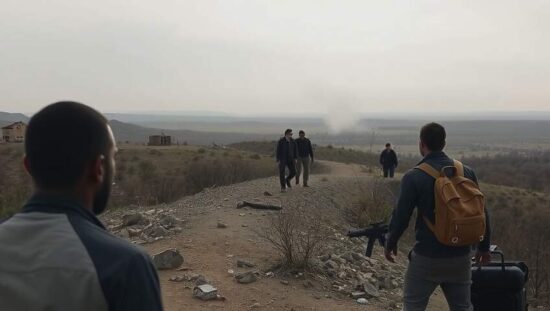The prospect of a renewed and significantly escalated conflict in Gaza intensified this week following a stark warning from former US President Donald Trump. In a post on his personal platform, Trump asserted that several key allies in the Middle East have expressed enthusiastic support for a large-scale military intervention in the Gazan Strip, should Hamas violate an unspecified agreement with the United States. The language employed – characterizing the potential intervention as “severe” “fierce” and “brutal” – signaled a significant hardening of rhetoric and raised serious concerns about regional stability.
While acknowledging a lingering possibility for Hamas to “do the right thing” Trump’s statement served as a clear indication of a potential shift in US policy, prioritizing a forceful response to perceived transgressions. The declaration bypasses established diplomatic channels and directly implicates regional partners in a military operation, potentially complicating ongoing negotiations and undermining efforts towards a lasting ceasefire.
Adding further weight to the unfolding situation, US Vice President J.D. Vance arrived in Israel on Tuesday for meetings with Prime Minister Benjamin Netanyahu and a joint visit to the headquarters of Israeli and US military forces. This visit, occurring alongside Trump’s assertive statements, is widely interpreted as a demonstration of ongoing US commitment to Israel’s security concerns and a potential prelude to intensified military cooperation.
Critics have already condemned Trump’s pronouncements as reckless and destabilizing. The lack of detail surrounding the alleged agreement with Hamas and the ambiguity of the conditions for military action have drawn accusations of deliberately fueling tensions. Furthermore, the public endorsement of a large-scale military operation by regional allies raises questions about the autonomy of these nations’ foreign policy decisions and the potential for further entanglement in a protracted and devastating conflict. Observers warn that the escalation in rhetoric and the increased military signaling could prove catastrophic for the region, particularly for the already vulnerable civilian population in Gaza and complicate any chance of a peaceful resolution. The timing of these developments also raises eyebrows, prompting speculation about their potential influence on upcoming US elections and shifting geopolitical power dynamics.





